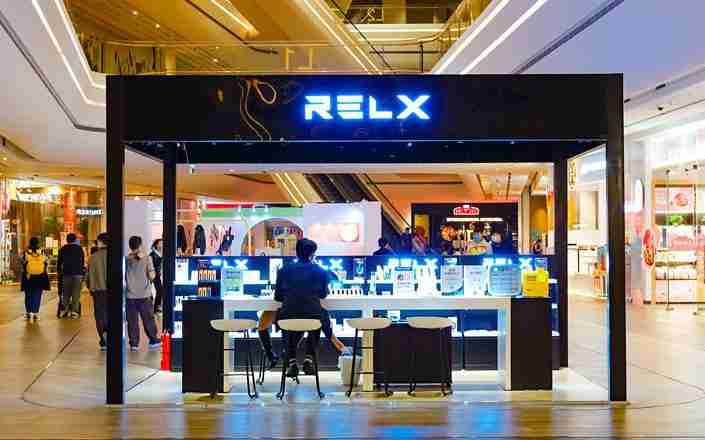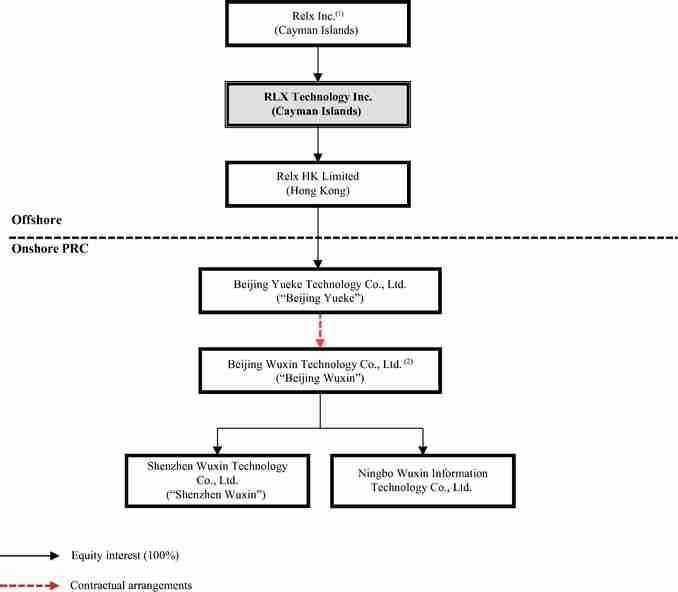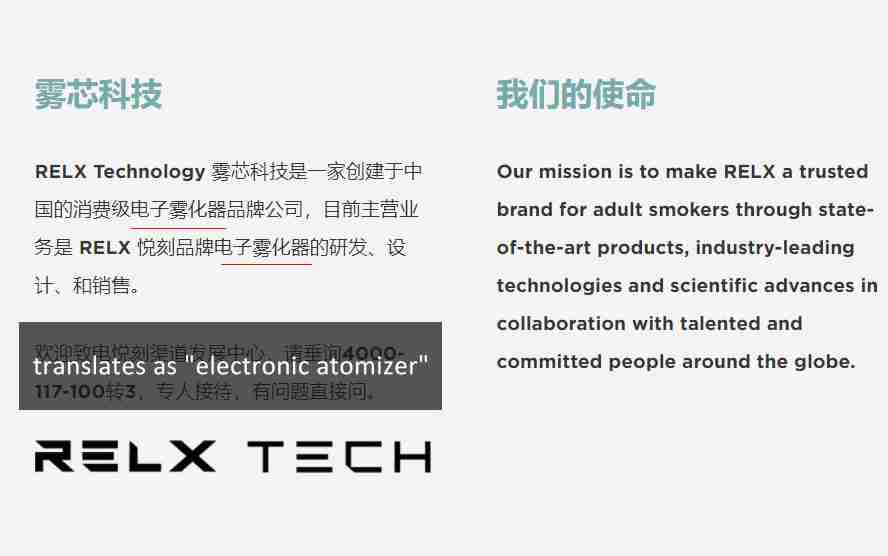 RLX's RELX brand kiosk in a Chinese shopping mall
RLX's RELX brand kiosk in a Chinese shopping mall
The story of RLX Technology Inc.'s fortune is one of a foreign company and capital taking advantage of a regulatory void in the Chinese market to reap profits.
Globally, more than 30 countries, including the United States, have now banned the sale of e-cigarettes. While the e-cigarette hype was supposed to have settled at the end of 2019, RLX has been able to lay a net in China by exploiting policy loopholes.
But just as Ant Group, a company of its magnitude, could only surrender under the strong regulation of the Chinese government, it was only a matter of time before a quasi-drug like e-cigarettes would be strongly regulated by the Chinese government.
RLX: Not a Chinese company
According to various media, RLX is one of the most valuable non-tech Chinese companies listed in New York. But this statement is wrong in one front - contraray to common assumption that RLX is a Chinese company, it is actually registered in the Cayman Islands, and the RELX e-cigarettes are in fact retailed through an A-share listed company called Shenzhen Aishide (SHE: 002416).

Source: https://sec.report/Document/0001047469-20-005751/
This is a common practice for foreign companies and capital to evade the Chinese government's regulation, which is to register an offshore company to conduct capital transactions for products that cannot enter China through normal channels, and to conduct business through a Chinese entity registered in China.
Little do wall street investors know, SZSE issued two letters (Source: letter one, letter two) on January 26 and January 19 to Shenzhen Aishide, asking it for clarification on its e-cigarette business.
The information requested by the SZSE includes: the main business model of the relevant subsidiary, its shareholding structure, accounting entries for the company's operating revenue, operating income, net profit, gross margin, net profit in the first 3 quarters of 2020, self-examination of whether there is insider trading, self-examination of whether there is illegal trading of the company's shares, the number of offline stores etc.
SZSE obviously want to get into the details. And remember, SZSE is not a private company like NYSE, but a Chinese government agency which is part of the same system as the regulatory authorities.
Exploiting the Chinese policy loophole
The IPO prospectus and English confesses its vision is to serve adult smokers, but its description in China describes itself as an
"electronic atomizer technology company". Both on their website and app, RLX never refers to their products as tobacco products, thus avoiding regulation by Chinese authorities.

Since electronic atomization devices and products are not tobacco, not food, and not drugs, they are not regulated by China's tobacco government monopoly system or the China Food and Drug Administration.
Since there is no definitive answer to the question of whether e-cigarettes are drugs, the Chinese Ministry of Public Security cannot handle them either.
Whether e-cigarettes cause lung diseases or not is not confirmed in China, so the Chinese Health and Welfare Commission can do nothing about it. RLX and the capital behind it are taking advantage of the regulatory space in China to carry out regulatory arbitrage.
China's regulation of e-cigarettes is late, but it has already begun.
In November 2019, China's State Tobacco Monopoly Administration and China's General Administration of Market Supervision and Administration jointly issued a notice to protect minors from e-cigarettes, prohibiting the sale of e-cigarettes to minors and urged e-cigarette manufacturers and sellers or individuals to promptly shut down e-cigarette internet sales websites or clients.
In November 2020, the same two departments further issued a document banning the sale of e-cigarettes on e-commerce platforms Cigarettes.
At the same time, China's National Health Commission also said it plans to regulate e-cigarettes through legislative means
Survival on the edge
Amid the regulatory gap, RELX, although not available directly online, has laid a network across China through A-share listed company Aishide, with RLEX e-cigarette ads and brand stores everywhere. There are 168,000 records in Baidu on RELX, while in social networks such as WeChat video and TikTok, there are experts and seller shows everywhere.
And on the RELX website, its so-called membership system makes it even easier for customers to place orders. In this way, RELX very easily breaks the rules about the prohibition of online sales, and the numerous offline stores are just the right place to supply and deliver these services.
RLX seems to be doing well now, but for how much longer?





